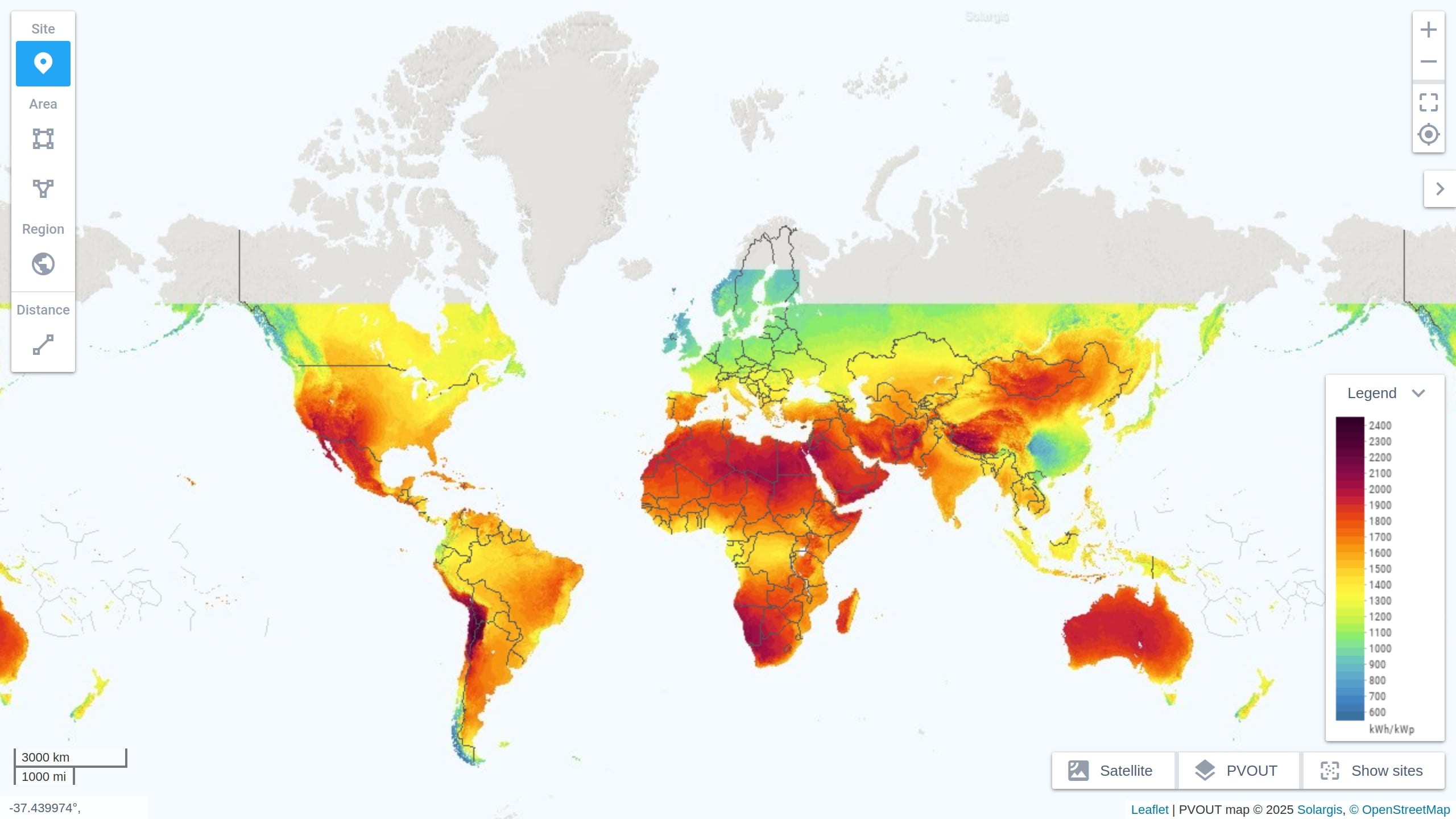this post was submitted on 08 Apr 2025
7 points (81.8% liked)
Technik
715 readers
1 users here now
die Community für alles, was man als Technik beschreiben kann
the community for everything you could describe as technology
Beiträge auf Deutsch oder Englisch
Posts in German or English
founded 9 months ago
MODERATORS
you are viewing a single comment's thread
view the rest of the comments
view the rest of the comments



No. That assumption is incorrect. At the equator there is little loss due to the atmosphere. Moving toward the poles, the atmosphere blocks more and more radiation.
Due to rotation of the earth, the effect becomes even stronger. And at the poles there is for a long period of the year even zero sunlight. .
Also note, the best area is not necessarily directly on the equator, because photovoltaic solar panels produce less energy at higher temperatures. Best place: a cool site, on a high mountain, somewhere in the tropics.
OP forgot to incorporate the tilt of the earth into their diagramm as well.